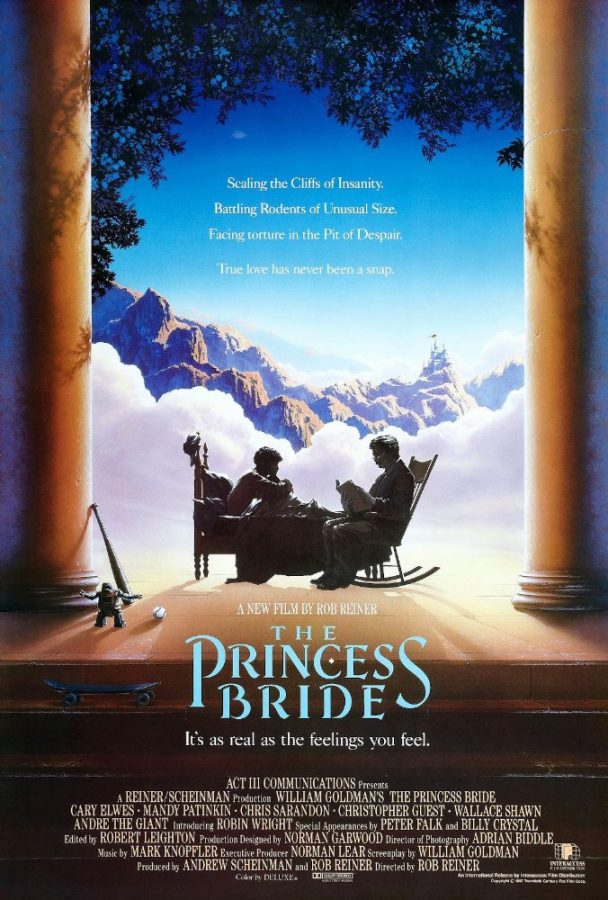Strategies help make methodological choices
The front cover of the Movie, “The Princess Bride” which was released in 1987.
September 4, 2019
A strategy executive in one of the organizations I worked for kept a toy button on him that would play a famous audio clip from the movie “The Princess Bride”: “You keep using that word. I do not think it means what you think it means.” The purpose of the button was to shut down the ridiculous use of a word that was thrown around by his colleagues: “strategy.”
‘“Strategy” has become a buzzword in the marketplace and among students. Despite its verbal dilution, the importance of strategy cannot be understated, especially for many University students who are making critical professional and personal life decisions. By stringently defining strategy in our lives, we can use it for zealous logical decision-making.
The potency of this idea can be demonstrated through organizational excellence. International Justice Mission (IJM) is a non-governmental organization that has rescued over 49,000 people from modern day slavery and has empowered justice systems for the systematic dismantling of human trafficking networks. IJM is able to perform at a high level because they understand their purpose and their skills: They are passionate about protecting the poor from violence, and they are global leaders in leveraging casework. The strategy the organization adheres to requires satisfying two criteria for making decisions: “Will this protect the poor from violence?” and “Will this maximize our abilities for the purpose of best using our resources?” By strictly considering these criteria, IJM has a logical, rigorous decision-making framework that allows them to make day-to-day decisions and conduct high-level planning.
This is an example of an organizational strategy that focuses decision-making on a common goal. The framework inherently and vehemently rejects sub-optimal initiatives. Using this type of strategy requires people and organizations to ask themselves questions about their purpose for existing and what they are capable of accomplishing.
On a personal level, what I ask myself every day is “Will this help me build character?” I attempt to create a comprehensive mental outline of how I spend my time and continuously reevaluate my personal strategy for ensuring I maximize every second on the University campus. I occasionally make brainless decisions like drinking way too much bubble tea or vegetating in front of my favorite TV show. That being said, these are not inherently bad things, but I would hardly put them in the category of “self-care.” In addition, I am human. The outcome of creating a personal strategy is progression, not perfection.
Get The Daily Illini in your inbox!
Not everybody needs to do mental somersaults for contemplating their ultimate purpose in life or create a rigorous decision-making framework. As students, we should consider some simple questions before making big decisions: Why did I come to the University of Illinois? Who do I want to be when I leave?
David is a senior in LAS.







